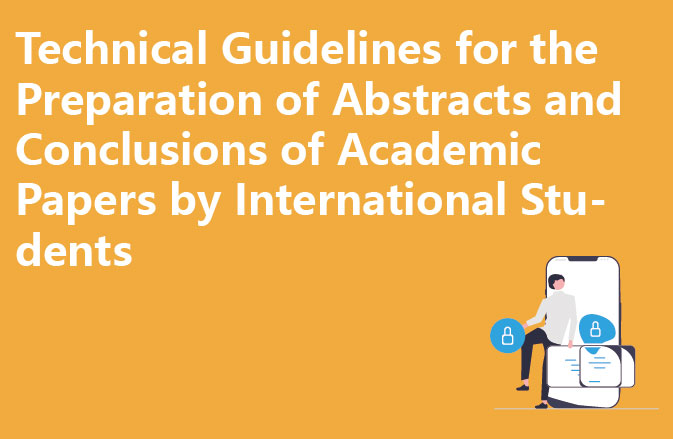I. Introduction
As one of the important elements of literature publication, it is undoubtedly a challenge for researchers to elaborate the substantive content of the study in an exhaustive and cohesive manner, i.e., to successfully prepare an abstract and conclusion. For this reason, this paper will explore how to effectively prepare the abstract and conclusion sections in academic papers of international students in order to enhance the impact and academic level of the literature.
II. Abstract writing skills
1. Deepening the understanding of the main body of the paper
Abstract writing requires that the author must be familiar with the overall content of the paper’s vein, including the research topic, implementation steps and research results. Detailed understanding of these contents can help the author better extract the core meaning of the abstract.
2. Extract the core points
Writing an abstract requires a high degree of ability to summarise and summarise. It is important to capture the key points of the study and use concise and clear language to form an abstract. At the same time, efforts to highlight the novelty of the study to stimulate the interest of readers and enhance the attractiveness of the literature.
3. Adhere to standardised wording
In order to ensure that the abstract is decipherable and authoritative, the preparation of the abstract must follow the book-style idiomatic language, do not use non-standard expressions or ambiguous vocabulary. Rigour and credibility are responsibilities that must be assumed in a clean academic environment.
4. Keeping the report coherent
The organisational structure of the abstract should be carried out according to the flow of the academic description, generally following the narrative path of “introduction, methodology, results, analysis, conclusion”, so as to make the logic of thought more rigorous, and facilitate the reader’s understanding and access.
5. Summarise the value of the research
The abstract should reflect the deeper meaning and practical application of the research results, identify the principles and guidelines revealed by the research, and the reference value to the empirical field. Summarising the value of the research helps to enhance the persuasiveness and application value of the paper.
6. Suggesting improvements
Abstracts can give suggestions for possible improvements or directions for future exploration. It points out the possibility of solving key problems and conducting further research, giving the academic results a broader and far-reaching space for development.
Third, the conclusion of the preparation skills
1. Summarise the research results
The conclusion needs to summarise all the research results in detail, eliminate redundant information, so that the reader can see the convincing data and logical reasoning of the study and increase the acceptance of the paper.
2. Emphasise theoretical and practical value
The results obtained from a scientific study usually have the potential for a wide range of theoretical or practical applications. Therefore, emphasising these values in the conclusion section is a necessary part of drawing the attention of peers and stakeholders to the research results and promoting the development of applications.
3. Identify the impact of the research on reality
The above two summaries or conclusions should not only be limited to theory, but should also describe what the results will bring about in practical application situations. This guides the reader to understand the important impact these findings may have in the real world and enhances the usefulness of the paper.
4. Showing the problems to be solved and envisaging follow-up research
Although a series of research work has been done, the pursuit of truth in art never ends. In the conclusion section, list the difficult problems to be tackled as a priority and set up a roadmap for the next step in order to advance the research endeavour day by day.
Conclusion: Maintain an attitude of continuous learning
Whether you’re an ivory tower scholar with plenty of time for research, a student with a heavy academic load, or a blogger with a passion for sharing knowledge, you’re always looking for opportunities to acquire knowledge, improve your skills, and expand your horizons. Let’s work together to move forward to the top of academic life!




